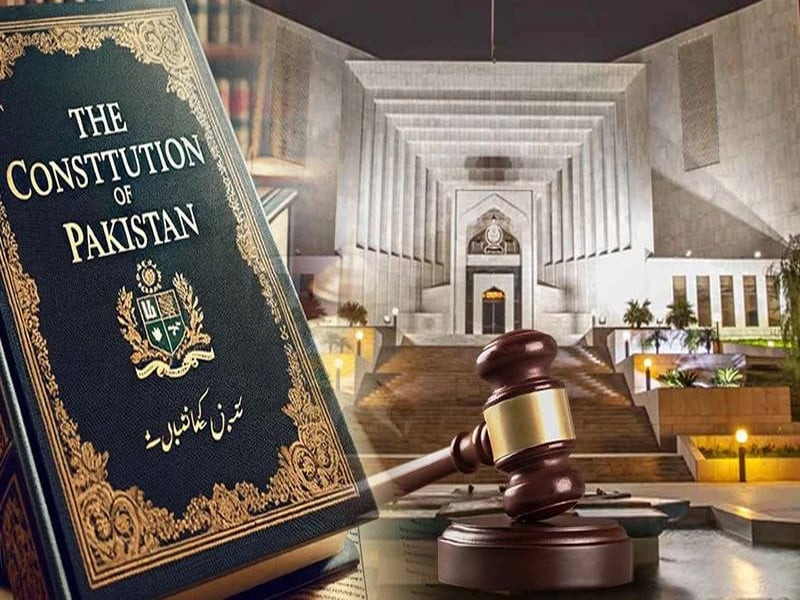
The Constitutional Bench of the Supreme Court on Monday said that those who explode bombs and conspired against the country in collusion with foreign spies should be differentiated from ordinary civilians.
The bench, led by Justice Aminuddin Khan, heard the intra-court appeal against the apex court decision of declaring the military trial of civilians as null and void. During the hearing, the court withdrew its order slapping fine on former chief justice Jawwad S Khawaja – one of the petitioners in the original case.
Khawaja's lawyer, Ahmed Hussain, concluded his arguments on Monday. After him, Salman Akram Raja began presenting his arguments. Continuing his arguments, Hussain said that civilians could be court martialed as the procedure of military courts was contrary to the requirements of a fair trial.
Sitting on the bench, Justice Hassan Azhar Rizvi questioned whether there was no difference between those who carried out blasts and conspired with spies and the ordinary civilians? He asked the lawyer to differentiate between them in his arguments.
Hussain replied that he was not giving arguments in the defence of any terrorist or the accused, adding that if the court martial of civilians was possible, there wouldn't have been the need for enacting the 21st Constitutional Amendment.
Justice Rizvi remarked that the 21st Amendment added some crimes to the Army Act. On that Hussain said that if the court martial was possible just by amending the Army Act, then again a constitutional amendment would not have been necessary.
In the 21st Amendment, he said, Article 175 of the Constitution was amended. He said that there was no concept of bail in military courts. Justice Rizvi remarked that military courts would conduct a speedy trial and decide the case in 15 days, so what difference would it make if there was a bail or no bail.
Hussain argued that appeals against the military court rulings did not go to an independent forum and that no lawyer of choice was available to the accused. "If the civilians' court martial is possible in this way, the bench will have to declare that the 21st Amendment was unnecessary," he told the court.
However, Justice Muhammad Ali Mazhar interjected, asking the lawyer to limit his arguments on the point that the central decision of the Supreme Court was correct or not. Justice Jamal Mandokhail said that the only question before the court was that on whom the Army Act would be applicable.
Justice Mandokhail said that if there was a terrorist attack on parliament, the Supreme Court and GHQ, and the trial of the attack on parliament and the Supreme Court would be held in the anti-terrorism court, and the GHQ attack case would go to the military court, so why and how this distinction was made.
Hussain took the position that the court should not open the door that would allow a civilian to be tried in military courts. On that Justice Aminuddin Khan remarked that the bench was not opening any door, rather "we only have to see whether the appeal is accepted or dismissed".

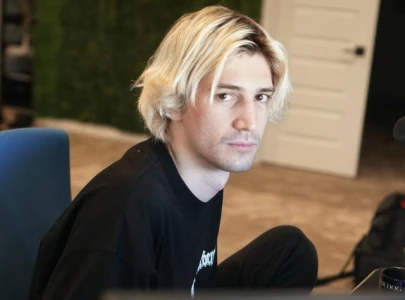
1719131916-0/Lily-Allen-and-David-Harbor-(1)1719131916-0-165x106.webp)


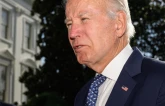

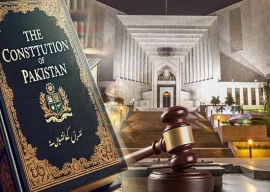





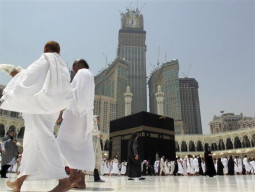
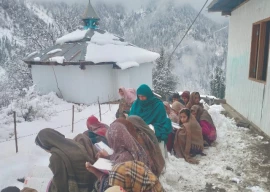


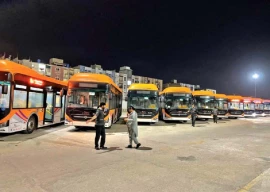
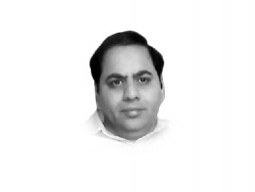





COMMENTS
Comments are moderated and generally will be posted if they are on-topic and not abusive.
For more information, please see our Comments FAQ